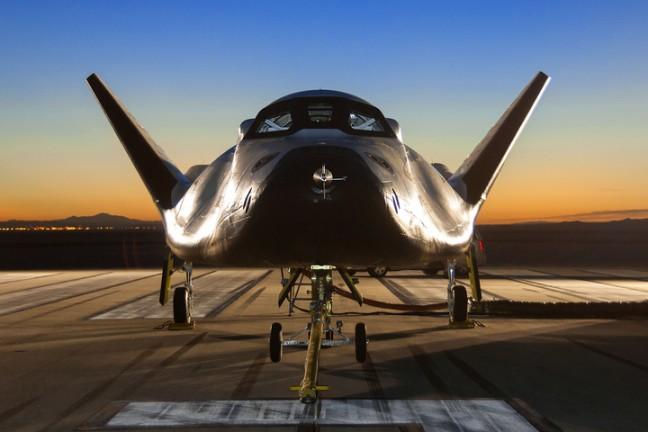A Madison-based company will make parts for the next spacecraft to service the International Space Station.
Orbital Technologies Corporation, or Orbitec, will provide the environmental controls, life-support system and reaction-control thruster system for Sierra Nevada Corporation’s Dream Chaser resupply vehicle, which NASA has selected to serve as one of the space station’s primary resupply vehicles starting 2019, Paul Zamprelli, Orbitec business director, said.
“We are one excited group,” Zamprelli said. “We’re making history, and being a part of something as historic as Dream Chaser is humbling.”
Dream Chaser resupply vehicle is a winged spacecraft that will take off affixed to a United Launch Alliance rocket and land in identical fashion to an airplane. The vehicle will carry fresh supplies up to the ISS and land on earth with waste and completed scientific experiments on board, Zamprelli said.
Orbitec will provide thrusters to help Dream Chaser dock with the ISS and the environmental and life-support systems to respectively regulate internal temperature and air circulation.
“Our reaction-control thrusters will serve as the steering mechanisms and impulse power for the vehicle itself,” Zamprelli said. “There’s also a cooling aspect and an air-circulation aspect; our equipment will keep the contents of the vehicle happy and ensure conditions inside Dream Chaser’s cabin are similar to the environment aboard the ISS.”
While Dream Chaser is a big-ticket item on Orbitec’s agenda, the firm is also currently working directly with NASA on some other exciting projects, Zamprelli said.
These projects have to do mostly with plant-growth in space.
“Our plant science has been very high focus for us,” Zamprelli said. “We are working with NASA Kennedy on various programs.”
In early January, astronauts aboard the ISS grew their first ever flower in space using Veggie, a botanical apparatus, which Orbitec designed and constructed to grow plants in space using LED lights rather than sunlight.
Orbitec has also received funding from NASA to develop a “green wall” that would line the walls of spacecraft with vegetation, which would provide both air-purification and insulation from cosmic radiation, Zamprelli said.
These botanical projects are a factor in NASA’s current interest in long-duration habitation of space.
“Certainly NASA’s charter is long-duration space now — going beyond low earth orbit,” Zamprelli said. “As a supplier to NASA, we want to focus on their focus. We certainly want to go beyond low earth orbit with our technology, so it’s a good fit for us.”
Orbitec’s acquisition by Sierra Nevada and extensive collaboration with NASA are particularly impressive considering the firm’s humble beginning. The company got its start in a Madison-area garage roughly 27 years ago, Zamprelli said.
The firm’s three founders grew up in the Madison area and opted to start their business here in Madison rather than an aerospace-industry hotbed like Houston, Texas out of love for the area, Zamprelli said.
“They love it here and they didn’t want to take the show to another area,” he said. “They had a dream and a vision to grow this company in Madison.”
The firm also has a strong connection to the University of Wisconsin. Orbitec CEO and cofounder Eric Rice received his bachelor’s degree from UW and played football for the Badgers, Zamprelli said.
In addition, Orbitec draws a great deal of its talent from UW, Robert Morrow, a former UW faculty member and current principal scientist at Orbitec, he said.
“Most of the people who work at Orbitec are UW-Madison graduates — engineering, primarily,” Morrow said. “We also collaborate frequently with faculty members at the university.”
Orbitec has a co-op program with UW School of Engineering and interacts with the university extensively, Morrow said.
Zamprelli said Orbitec is proud that Sierra Nevada will be using locally produced technology in the historic Dream Chaser vehicle.
“We have been very fortunate and are very happy that Sierra Nevada won the contract using the technology that Orbitec developed here in Madison,” Zamprelli said.


